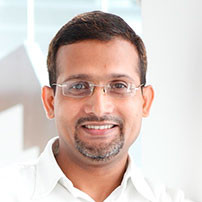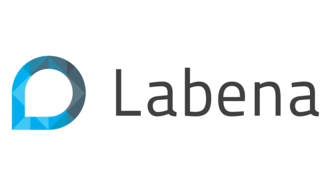Vijay Tiwari
Group Leader at Developmental Epigenomics Laboratory.
Dr. Tiwari obtained an MSc in Molecular & Human Genetics at Banaras Hindu University, a Centre of Excellence in the Life Sciences in India. He then moved to the epigenetics lab of Prof. Rolf Ohlsson at Uppsala University in Sweden for his doctoral studies where he completed a thesis with distinction.
His research continued very successfully as a postdoc with Prof. Dr. Stephen Baylin, a pioneer in cancer epigenetics, at Johns Hopkins University School of Medicine in Baltimore, USA and then with Prof. Dr. Dirk Schübeler, who is a European leader in epigenomics, at the Friedrich Miescher Institute (FMI) in Basel, Switzerland. Currently, Dr. Tiwari heads a lab at the Institute of Molecular Biology (IMB) in Mainz, a Centre for Excellence in Life Sciences, focusing on epigenetic regulation of development and disease.
Dr. Tiwari has received numerous awards and fellowships including Zoologiska foundation fellowship (Sweden), a Johns Hopkins postdoctoral fellowship (USA), a European Molecular Biology Organization (EMBO) fellowship and a Marie Curie International Incoming Fellowship (IIF) (European Union). He became one of only eleven Young Investigators to have been awarded the prestigious RISE1 award from the EpiGeneSys Network of Excellence (EU) in 2012.
He further received Bruno Speck Award for outstanding work in the field of stem cell research in 2013 and Faculty of the Year award in 2014. In June 2015, he was awarded with prestigious Wilhelm Sander-Stiftung Award in recognition of his outstanding contributions in biomedical research.
Major research interests
Dr. Tiwari’s research is aimed at achieving an integrated molecular and systems-level understanding of gene regulation via epigenetic machinery and transcription factors, especially during cellular differentiation as well as during carcinogenesis.
To address these questions, his lab employs a multidisciplinary approach combining cutting-edge epigenetics and genomics together with computational biology tools in sophisticated and defined cellular models.
This site uses cookies.
Some of these cookies are essential, while others help us improve your experience by providing insights into how the site is being used.
For more detailed information on the cookies we use, please check our Privacy Policy.
-
Necessary cookies enable core functionality. The website cannot function properly without these cookies, and can only be disabled by changing your browser preferences.






